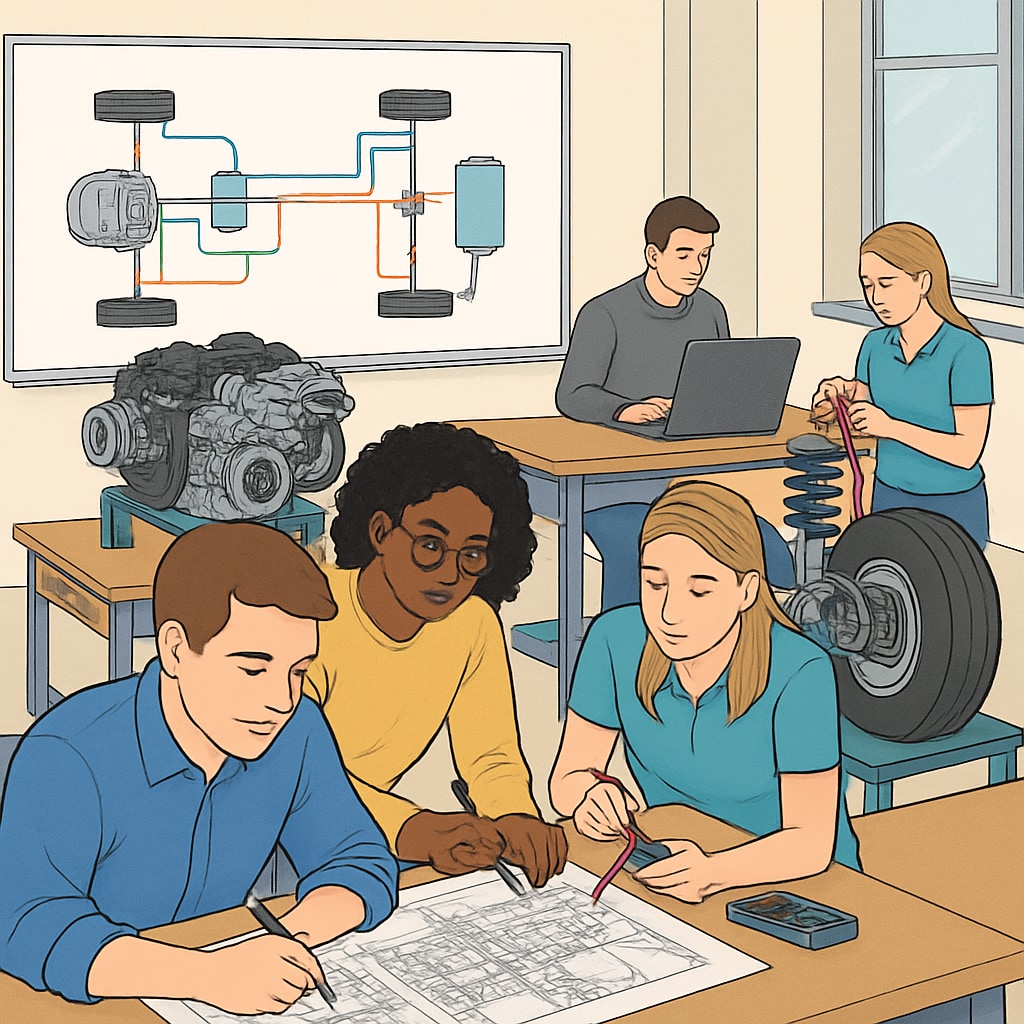Military personnel with an associate degree in automotive technology often seek opportunities to advance their education and career by pursuing a bachelor’s degree. The process involves careful consideration of credit transfer policies, identifying compatible degree programs, and strategically selecting paths that align with their skills and goals. In this article, we’ll explore how military members can transition from automotive technology to a bachelor’s degree while maximizing their existing qualifications.
Understanding Credit Transfer for Automotive Technology Programs
One of the most important factors in advancing from an associate degree to a bachelor’s degree is understanding how credits can be transferred. Many universities offer credit transfer agreements that recognize technical coursework completed during associate programs, including automotive technology. Military personnel should research institutions that are friendly to transfer students and inquire about credit equivalencies.
For example, some universities have articulation agreements with community colleges or technical schools that streamline the credit transfer process. Additionally, military service members may qualify for credits based on their service experience, as evaluated through systems such as the Joint Services Transcript (JST). These credits can often be applied toward general education or technical electives, reducing the overall time and cost needed to complete a bachelor’s degree.

Choosing Compatible Bachelor’s Degree Programs
The next step for military personnel with an associate degree in automotive technology is selecting a bachelor’s degree program that complements their existing knowledge and skills. Here are some of the most compatible options:
- Automotive Engineering Technology: This program expands upon the technical foundations of automotive systems and prepares graduates for leadership roles in engineering, design, and manufacturing.
- Mechanical Engineering: A broader field that offers opportunities to work on diverse engineering systems, including automotive technologies.
- Business Administration: Ideal for those who aim to transition into management roles within the automotive industry or other sectors.
- Industrial Technology: Focused on optimizing manufacturing processes and systems, this degree is suitable for individuals interested in operations and production.
Each of these programs has unique benefits depending on the career aspirations of the student. For example, automotive engineering technology is highly specialized, while business administration provides versatility for roles beyond technical positions.

Military-Friendly Universities and Resources
Military personnel should prioritize universities that offer support for veterans and active-duty members. Institutions with dedicated veteran affairs offices, online programs, and flexible scheduling can make the transition smoother. Additionally, scholarship programs such as the Post-9/11 GI Bill or Yellow Ribbon Program may cover tuition costs.
Some resources to explore include:
Post-9/11 GI Bill Benefits on VA.gov
Yellow Ribbon Program on Wikipedia
Researching military-friendly schools and consulting with advisors will ensure the chosen program meets both educational and logistical needs.
Maximizing Career Opportunities After Graduation
Once military personnel complete their bachelor’s degree, the opportunities for career advancement are significant. Graduates with technical expertise and leadership skills can pursue positions such as automotive engineers, production managers, or even entrepreneurs in the automotive sector. Additionally, a bachelor’s degree opens doors to industries outside automotive technology, including aerospace, energy, and consulting.
In summary, transitioning from an associate degree in automotive technology to a bachelor’s degree requires strategic planning, research, and leveraging available resources. By selecting compatible programs, understanding credit transfer policies, and choosing military-friendly institutions, service members can maximize their existing qualifications and achieve their academic and career goals.
Readability guidance: Use short paragraphs and lists where appropriate. Ensure clear transitions between sections, prioritize active voice, and maintain a professional tone throughout.


